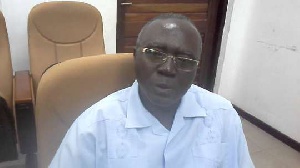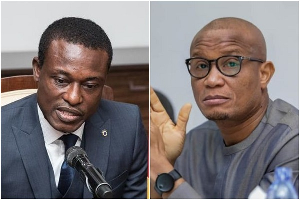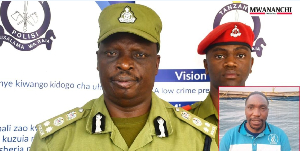Mr Seth Osafo, the Legal Adviser to the African Negotiators at the UN Climate Negotiations, says the Africa Climate Week, hosted by Ghana, was very useful to the youth as it prepared them to join the fight against the phenomenon.
He said the Africa Climate Week served as an important platform for Africans to meet to discuss climate change, how it was impacting the Continent, and what Africa could do to adapt to its impacts.
Speaking to the Ghana News Agency at the end of the conference in Accra, Mr Osafo said the engagement with the youth, in separate sessions of the conference, was critical as they needed to understand what Climate Change was all about.
“The youth need to understand what is really happening, and for me, the keypoint of the summit was the involvement of the youth - they have got energy and if they understand the issues very well, it would be in the right direction towards the fight and mitigation of the impacts,” Mr Osafo said.
“The greater part of our population is the youth so if we can get them involved and prepare them to get involved in a very active way then we will make some headway”.
“We also need to understand the scientific aspects of what the Intergovernmental Panel on Climate Change keep saying that Africa is the Continent that suffers the most from climate change - the most impacted and so in doing whatever at the national level, we must do same at the international level to make the voice of Africa heard.”
“So that whatever action that would be taken would be coordinated at the International level and then we will all make sure that we address it together.”
The Africa Climate Week (ACW), which ended in Accra last week, is the first of three annual regional climate events being organised this year, with the two others being the Latin America and Caribbean Climate Week, and the Asia Pacific Climate Week.
The ACW was held on the theme: “Climate Change Action in Africa: A Race We Can Win," and hosted by the Ministry of Environment, Science, Technology and Innovation, the UNFCCC, the Nairobi Framework Partners and the West African Development Bank.
The event was to discuss how Africa could partner to implement its Nationally Determined Contributions (NDCs) to mitigate climate change.
It was attended by more than 2,000 delegates from government and non-government actors, private sector representatives, Civil Society Organisations (CSOs), women groups, youth, climate experts and the media from across the globe.
Mr Osafo said the issue of climate science, as one of the main talking points at the conference, was as important as the involvement of the youth.
He noted that it was important to gather Africans together including government institutions, CSOs, women groups and young people, to discuss climate change and the way forward.
“Africa is already feeling the impact of climate change. The Cyclone Idai that recently hit and devastated parts of Mozambique and Malawi, and the frequency of such occurrences could attest to the fact that climate change is a contributory factor”.
Mr Osafo said the frequency of the occurrences, especially in Africa, should make the Continent to focus its mind on the future, and prepare to meet the challenges.
“Climate Change is going to happen anyway and so we need to prepare to adapt to its effects by taking actions at the domestic and national levels while development plans should include how to meet such challenges and mitigate the impacts,” he said.
“The message from the Africa Climate Week must be sustainable development and we must ensure that our development is sustainable and not destructive.”
“We must preserve our forests. We can’t continue to cut down our trees and use them for charcoal and assume that the trees would grow by themselves. We need to take tree planting very seriously.”
General News of Thursday, 28 March 2019
Source: bbc.com













